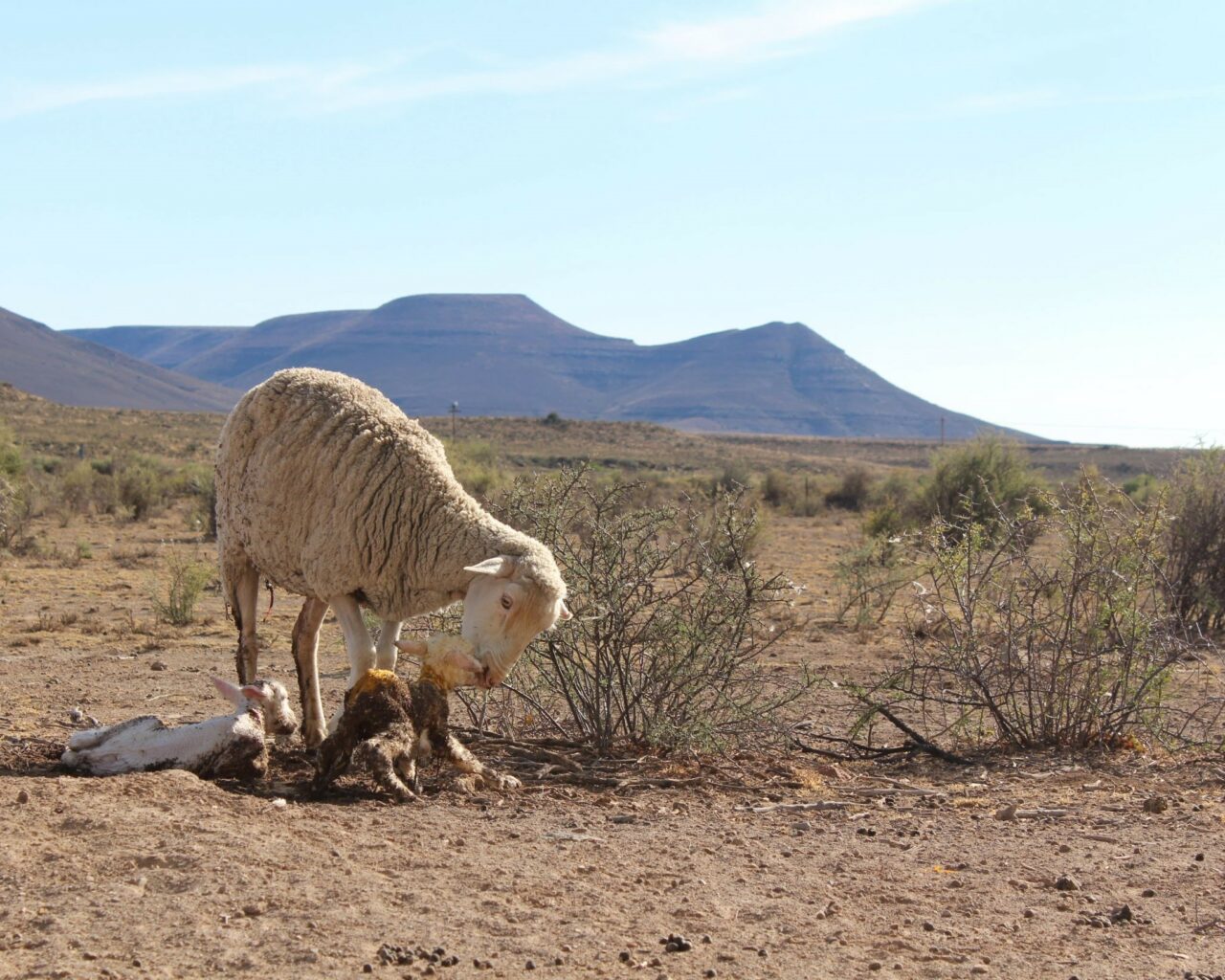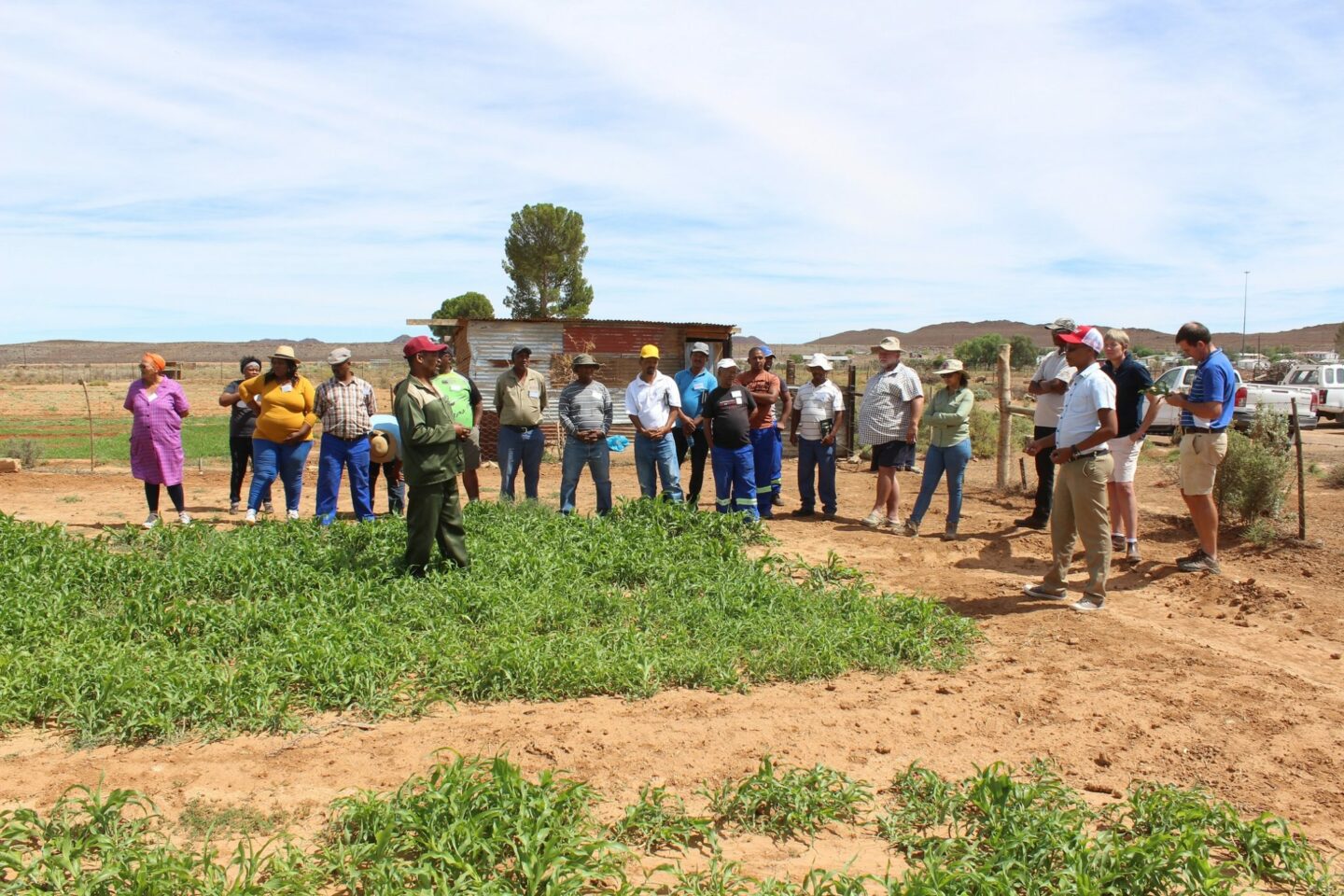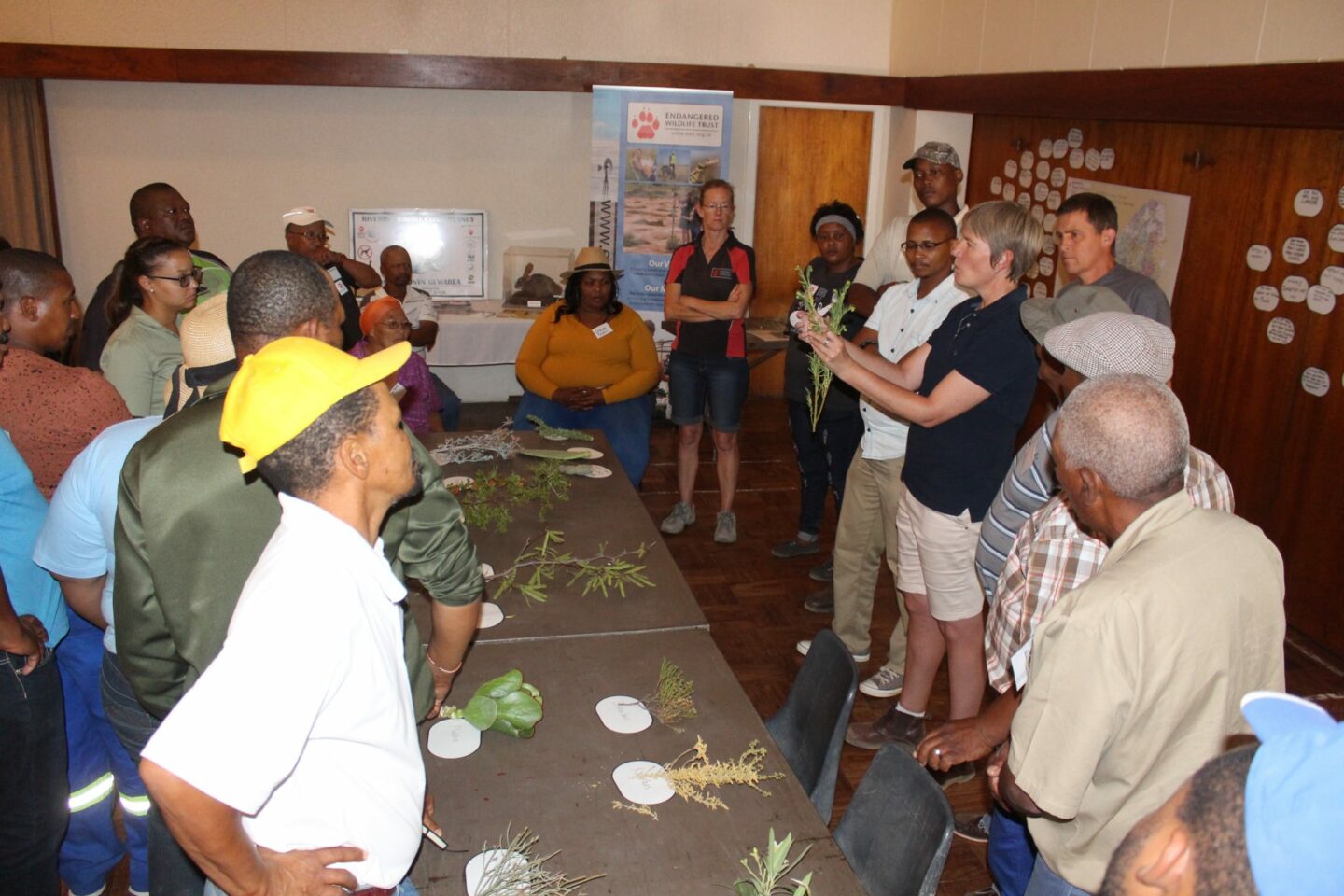FARMING FOR THE FUTURE
Bonnie Schumann, Nama Karoo Coordinator, Drylands Conservation Programme, bonnies@ewt.org.za

The Karoo is an iconic and timeless landscape that has been farmed for large-scale small stock production for almost 400 years. The question is, will the Karoo be able to support agriculture for the next 400 years, given the extraordinary current economic and environmental conditions? The Karoo landscape is largely intact, with natural rangeland forming the foundation for its world class small stock meat and wool production systems. However, it bears the scars of the learning curve that farmers went through to learn how best to manage this rugged but fragile ecosystem, with a loss of species diversity and soil erosion evident across the landscape.
Hard lessons have been learned. Karoo farmers are some of the most resilient, adaptable and resourceful land users in the world. The Endangered Wildlife Trust’s Drylands Conservation Programme (EWT-DCP) launched the Karoo Forever project two years ago. The project aims to capture lessons learned, spark future farming innovation, and share this knowledge far and wide. This year we launched a project specific website to make this information accessible to the broader farming community.
Both the EWT and the farmers with which we are working, believe that the Karoo can be farmed forever, and that sustainable land management and farming efficiency, including the diversification of income streams, are key to ensuring that this happens. The Karoo has the potential to sustain livelihoods in this arid ecosystem indefinitely; unlike alternative unsustainable land uses such as fracking or uranium mining – which are “flash in the pan” sources of income for a limited few, and which invariably leave devastated landscapes and impoverished communities in their wake.
With this in mind, the EWT-DCP embarked on the Karoo Forever project funded by the Global Environment Facility (GEF), and supported by the United Nations Development Programme (UNDP) and the Department of Forestry, Fisheries, and Environment (DFFE), to promote sustainable land management (SLM) in the Karoo.
The project website has links to sustainable land management resources, which include a number of topic-specific webinars. Manie Grobler, Agricultural Advisor for the Department of Agriculture (Western Cape) and Dr Louis du Pisani (all-round karoo farming expert and consultant) have each conducted a webinar series. Manie has been integrally involved in the project from the outset, helping to design the Integrated Farm Planning and Management (IFP) training course which we conducted twice for emerging farmer groups last year. The course is now also freely available online through the Karoo Forever website. The webinars form the advanced content component for the basic IFP course.

The first webinar series was conducted by Manie and focused on the Intensification of sheep production. Dr Bennie Grobler, veterinarian in Beaufort West, shared his expertise on some of the livestock health aspects as well. Intensification of sheep production has some great ecological spin-offs, in that while livestock are kraaled (periods vary according to the production system), the veld gains valuable extra rest days, and ewes lamb safely under supervision, avoiding predation during this critical period. The second webinar series focused on the Recovery of veld following drought in light of climate change. Dr Louis du Pisani, through the National Wool Growers Association, hosted this webinar series. Louis recently published a book titled Smart Drought Management for Livestock Farmers (available here). This is definitely a must-have resource for every farmer. Both Louis and Manie have a lifetime of valuable knowledge gained in the field. Their passion for all things farming is evident, and both have a great way of communicating this knowledge, which is inspiring as well as educational. Henk Cerfonteyn guided viewers through a very insightful webinar on accessing seasonal weather forecasts for South Africa, as well as understanding and interpreting these forecasts. His presentation also helped viewers obtain a perspective on the current climatic and vegetation conditions. Henk, a risk assessment scientist, worked for the Department of Agriculture (Western Cape) for many years. Although Henk has since retired, he is still sharing his passion for weather with farmers.

This digital approach to sharing knowledge not only reduces the carbon footprint of travel, but at this critical time in our country, allows participants to stay safe and maintain social distancing, as farmers can join in the discussions from the comfort of their homes. Fortunately, the Drylands Conservation Programme has a strong focus on technology in its approach to conservation, so we were inadvertently ready for the impact of Covid-19, with an already well-developed online platform to reach even the most remote farmers.
Thank you to the Global Environment Facility (GEF), the United Nations Development Programme (UNDP), and the Department of Environment, Forestry, and Fisheries (DFFE) for making this project possible.
Whether you have a passion for the Karoo, conservation, agriculture, or all three, please visit the Karooforever website to learn more about the exciting partnerships and project activities happening now.
